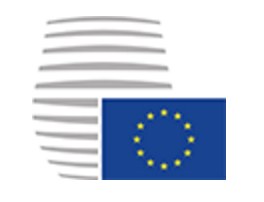At a meeting of the Environment Council of the European Union (EU), Environment Ministers agreed on a number of statements and action plans related to wildlife trafficking, the circular economy and marine plastic pollution, and climate change.
 23 June 2016: At a meeting of the Environment Council of the European Union (EU), Environment Ministers agreed on a number of statements and action plans related to wildlife trafficking, the circular economy and marine plastic pollution, and climate change. The Environment Council meeting convened on 20 June 2016 in Luxembourg.
23 June 2016: At a meeting of the Environment Council of the European Union (EU), Environment Ministers agreed on a number of statements and action plans related to wildlife trafficking, the circular economy and marine plastic pollution, and climate change. The Environment Council meeting convened on 20 June 2016 in Luxembourg.
On wildlife, Ministers endorsed the EU Action Plan against Wildlife Trafficking 2016-2020, expressing concern about increases in illegal wildlife trafficking and stressing its negative effects on biodiversity and sustainable development. The Action Plan outlines a list of 32 measures to tackle illegal wildlife crime and ensure a coordinated response. It focuses on three priority actions: preventing wildlife trafficking and addressing its root causes; implementing and enforcing existing rules and combating organized wildlife crime more effectively; and strengthening the global partnership of source, consumer and transit countries against wildlife trafficking. According to the EU, this Action Plan is part of the EU’s response to the 2030 Agenda for Sustainable Development, particularly SDG 15 (Protect, restore and promote sustainable use of terrestrial ecosystems, sustainably manage forests, combat desertification and halt and reverse land degradation and halt biodiversity loss) and target 15.7 to take urgent action to end poaching and trafficking of protected species of flora and fauna and address both the demand and supply of illegal wildlife products.
On a circular economy, Ministers agreed on an EU Circular Economy Action Plan, which aims to reduce waste and maintain materials, resources and products in the economy as long as possible, including by better managing waste and increasing recycling. The Action Plan reiterates the need for preventing marine litter, particularly plastics, from ending up in the environment to achieve a significant reduction by 2020; considers eco-design of plastic and plastic products and sound management of plastic waste as essential for pollution prevention; welcomes voluntary initiatives taken by industry; and calls on the Commission to propose robust measures to reduce discharge of macro- and micro-sized plastic debris in the marine environment as part of its plastic strategy by 2017 at the latest, including a proposal for a ban on micro-plastic particulates in cosmetics and proposals to address other products generating marine litter as appropriate, while taking into account developments within regional sea conventions.
The Action Plan further, inter alia: stresses the importance of integrated water management in the recycling of water waste; acknowledges the benefits of natural capital, the importance of ecosystems and their services and the need for sustainable use of natural resources; and reiterates that a circular economy requires investment in sustainable and innovative solutions and also in green public expenditure. The Action Plan supports efforts of all actors to reduce food waste, as part of contributions to achieving SDG 12 (Ensure sustainable consumption and production patterns) and its target 12.3 to “halve per capita global food waste at retail and consumer levels and reducing food losses along production and supply chains, including post-harvest losses, by 2030.”
On climate change, Ministers adopted a statement on the ratification of the Paris Agreement on climate change, recalling the intrinsic relationship of climate change, responses and impacts with equitable access to sustainable development and poverty eradication, food security, and ecosystem integrity and the protection of biodiversity, including forests. The Council calls for ratification of the Paris Agreement as soon as possible and calls on member States and the EU “to start taking the necessary steps to finalize their respective ratification procedures…with a view to deposit collectively their ratification instruments with the UN Secretary-General.” Dutch Minister for the Environment and President of the Environment Council, Sharon Dijksma, said, “With this statement we want to send a clear political message on the EU’s commitment to address climate change. We are determined to ratify the Paris agreement as soon as possible and to work for effective implementation of the deal.” Ministers also held a policy debate on the emissions trading scheme (ETS), which aims to reduce greenhouse gas (GHG) emissions and address climate change.
Ministers also addressed rules and limits for air pollutants; emissions by diesel cars; global amphibian deaths; environmental implementation review; and held an informal meeting of environment and transport ministers. [EC Press Release on Council Statement on Paris Agreement] [EC Press Release on Council Conclusions on Circular Economy [Meeting Website] [Publication: EU Action Plan Against Wildlife Trafficking] [IUCN Press Release]